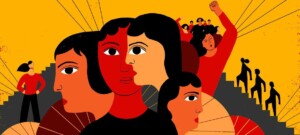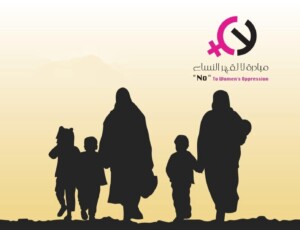Outrage in Sudan as new force reminiscent of Public Order Police is installed
The Sudanese Ministry of Interior’s decision to establish a new ‘Community Police’ has triggered widespread controversy in the country amidst fears that the decision will facilitate the return of the Public Order Police in Sudan.
 Sudanese Police (SUNA)
Sudanese Police (SUNA)
The Sudanese Ministry of Interior’s decision to establish a new ‘Community Police’ has triggered widespread controversy in the country amidst fears that the decision will facilitate the return of the Public Order Police in Sudan.
On August 12, the Director General of Police announced the decision to establish the Community Police. Supporters of the now abolished Public Order Law hope the new force will control Sudanese society, which they believe has “loosened up too much recently”.
Opponents, however, fear that the new force will severely restrict freedoms and pose a further threat to the ideals of the 2019 December Revolution and will, in practice, mean the return of the notorious Public Order Police that had a profound impact on Sudanese society during the dictatorship of Omar Al Bashir.
In a statement, the Police Press Office spoke about “the formation of a community partnership to prevent crime”, explaining that “the police, to ensure its success in performing its tasks, needs community support”, essentially asking Sudanese to participate in this new policing system and watch their neighbours.
The official police spokesperson, Brig Abdallah Bashir El Badri, explained to Sudanese Blue Nile TV Channel on Wednesday that the police aim to “work to maintain security and protect society through crime scouting and prevention work, so we seek to involve the citizen in this task because he is concerned with his safety”.
“If it is proven that there are people who violate the Public Order Law, they will be held accountable”, El Badri added.
'As a society, we have traditions and customs that do not accept scandalous confusion and extraneous phenomena' – Police Spokesperson El Badri
“As a society, we have traditions and customs that do not accept scandalous confusion and extraneous phenomena”, the police spokesman added. “Therefore, we seek to create an effective partnership between us and the society by introducing this important cooperation to maintain security in the country”.
The Sudan Police Press Office issued a clarification after the television statement of their official spokesperson, saying that the Community Police will have nothing to do with the Public Order Police and is “not an executive tool of the Public Order Law”.
Public Order system
The Public Order Law was officially abolished in November 2019, after the downfall of Al Bashir. The Public Order system disproportionately affected women.
After the repeal of the Public Order Law, former PM Abdallah Hamdok tweeted that “[t]his law is notorious for being used as a tool of exploitation, humiliation [and] violation of rights. Many have used this law for financial [and] psychological exploitation. Along the way a lot of women and youth endured confiscation of their belongings and unforgettable harm”.
Since the introduction of the Muslim Sharia law in 1983, the more than once amended infamous Public Order Act has enforced strict moral codes by prohibiting “indecent and immoral acts”.
Most of the offenses relate to interactions between men and women, dancing, choice of dress, smoking, and other personal behaviour that the authorities deemed ‘improper’.
'The Islamists used the public order as an important tool to sustain their power through building an environment of fear' – Reem Abbas
Sudanese were asked to co-operate in this policing network. As Reem Abbas wrote for CMI, an independent development research institute in Norway, Al Bashir’s Islamist government “used the public order as an important tool to sustain their power through building an environment of fear”.
They encouraged and empowered of people to report any ‘suspicious” activities. “A citizen had the power to call on the public order if he saw girls dressed in ‘indecent clothing’ or if he suspected that a mixed party was taking place in a private house”.
The fact that the Public Order Law contained vague phrases such as ‘indecent clothing’ gave officers the chance to decide and rule out what is decent and indecent, Abbas explained.
“Your safety and freedom was dependent on the opinion and personal preferences of public order officers and random men loitering on the street armed with a misogynistic vendetta”, she wrote.

(UN Convention on the Elimination of all Discrimination Against Women)
(EPA / Morwan Ali)
Criticism and fears
Many consider the introduction of the Community Police a return to the Public Order Police but under a new name.
The Sudanese police stated that the Community Police only “aims to spread the culture of responsibility among community members to do preventive security work” but, to many, this is reminiscent of the Public Order system that was so dependent on this ‘environment of fear’ in which Sudanese were encouraged to report each other.
Prominent human rights lawyer Nabil Adib condemned the idea of a Community Police and told EremNews that "the basic duties of the police are to maintain security and implement the criminal law, but they have nothing to do with people's morals".
'The basic duties of the police are to maintain security and implement the criminal law, but they have nothing to do with people's morals' – Nabil Adib
The Emergency Lawyers published a statement earlier this week on “the establishment of the Community Police and the possible return of the Public Order Police”.
The public opinion has recently been preoccupied with the decision of the director general of the Sudanese Police Forces to establish a Community Police, which has led to rumours about the return of the Public Order Police, the lawyers explained.
They argue that the formation of the Community Police, in the current political context, legitimises more human rights violations and will fuel more divisions in society.
They explained that “a new [policing] system is being formed based on pro-active measures”.
“The police know that this system requires community satisfaction to succeed”, the lawyers wrote. In reality, however, the police are facing many accusations regarding their excessive use of violence against Sudanese civilians following the October 25 coup.
The police now also enjoy broad immunity in accordance with Emergency Decree 3, which reinforces the doctrine of impunity in which police are not held accountable for their actions, the lawyers explain.
The lawyers explain that Sudanese police will therefore first need to undergo comprehensive reform in which those accused of violence and abuse of power are removed from their positions and those responsible for human rights violations are held accountable.
Unless such comprehensive reform takes place and communities feel safe and satisfied, the formation of a Community Police will only lead to, and legitimise, more abuse of power and human rights violations.
“We assure the public that there is no constitutional and legal legitimation for the return of the Public Order Police, and that we will continue to monitor and address all human rights and legal violations in Sudan”, the statement concludes.
'The police, as an executive body, does not have the right to determine the people’s way of life' – National Accord Forces leader Mubarak Ardol
Politician Mubarak Ardol, leader of the split-off Forced for Freedom and Change-National Accord (FFC-NA)*, tweeted: “If this statement from the police is true, then it means a return to the notorious Public Order Police, which is a dangerous and unacceptable matter that cannot be tolerated. The police, as an executive body, does not have the right to determine the people’s way of life”.
Lawyer Baroud Sandal, however, defended the new police force and said that "the problem is not with the Public Order Law, but with how it is applied". He told EremNews that "it is not a bad law” and that “there must be a deterrent law regulating the street".
'There must be a deterrent law regulating the street' – Lawyer Baroud Sandal
On social media, news already circulated that a concert by the well-known singer Moataz Sabahi was cancelled on orders of the Community Police and that all concerts in Khartoum now need to end at 22:00.
* Last year, a group dominated by members of former rebel movements split off and formed the FFC-National Accord faction. The faction, also known as the National Accord Forces, is chaired by Mubarak Ardol, the former spokesmen for the Sudan People Liberation Movement-North, who became director of the Sudanese Company for Mineral Resources linked with the then-ruling National Congress Party of dictator Omar Al Bashir.











 and then
and then